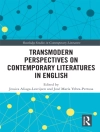Noir Affect proposes a new understanding of noir as defined by negative affect. This new understanding emphasizes that noir is, first and foremost, an affective disposition rather than a specific cycle of films or novels associated with a given time period or national tradition. Instead, the essays in Noir Affect trace noir’s negativity as it manifests in different national contexts from the United States to Mexico, France, and Japan and in a range of different media, including films, novels, video games, and manga.
The forms of affect associated with noir are resolutely negative: These are narratives centered on loss, sadness, rage, shame, guilt, regret, anxiety, humiliation, resentment, resistance, and refusal. Moreover, noir often asks us to identify with those on the losing end of cultural narratives, especially the criminal, the lost, the compromised, the haunted, the unlucky, the cast-aside, and the erotically “perverse, ” including those whose greatest erotic attachment is to death. Drawing on contemporary work in affect theory, while also re-orienting some of its core assumptions to address the resolutely negative affects narrated by noir, Noir Affect is invested in thinking through the material, bodily, social, and political–economic impact of the various forms noir affect takes.
If much affect theory asks us to consider affect as a space of possibility and becoming, Noir Affect asks us to consider affect as also a site of repetition, dissolution, redundancy, unmaking, and decay. It also asks us to consider the way in which the affective dimensions of noir enable the staging of various forms of social antagonism, including those associated with racial, gendered, sexual, and economic inequality. Featuring an Afterword by the celebrated noir scholar Paula Rabinowitz and essays by an array of leading scholars, Noir Affect aims to fundamentally re-orient our understanding of noir.
Contributors: Alexander Dunst, Sean Grattan, Peter Hitchcock, Justus Nieland, Andrew Pepper, Ignacio Sánchez Prado, Brian Rejack, Pamela Thoma, Kirin Wachter-Grene
Innehållsförteckning
Preface | vii
Introduction : Dark Passages
Christopher Breu and Elizabeth A. Hatmaker | 1
1. Toward Alphaville: Noir, Midcentury Communication, and the Management of Affect
Justus Nieland | 29
2. Public Violence as Private Pathology: Noir Affect in The End of a Primitive
Christopher Breu | 59
3. Cold Kink: Race and Sex in the African American Underworld
Kirin Wachter-Grene | 78
4. Noir Pedagogy: The Problem of Student Masochism in the Classroom Economy
Elizabeth A. Hatmaker | 99
5. The Shadows of the Twilight World: Beebo Brinker and the Circulation of Affect
Sean Grattan | 122
6. Peripheral Noir, Mediation, and Capitalism: Noir Form, Noir Mediascape, Sociological Noir
Ignacio M. Sánchez Prado | 137
7. Cyborg Affect and the Power of the Posthuman in the Ghost in the Shell Franchise
Peter Hitchcock | 156
8. Playing with Negativity: Max Payne, Neoliberal Collapse, and the Noir Video Game
Brian Rejack | 178
9. Chick Noir: Surveilling Femininity and the Affects of Loss in Gone Girl
Pamela Thoma | 197
10. Surplus Feelings: Neoliberal Noir and the Affective Economy of Debt
Alexander Dunst | 222
11. Capitalism as Affective Atmosphere: The Noir Worlds of Massimo Carlotto
Andrew Pepper | 241
Afterword : Melodrama, Noir’s Kid Sister, or Crying in Trump’s America
Paula Rabinowitz | 261
List of Contributors | 275
Index | 279
Om författaren
Christopher Breu is professor of English at Illinois State University where he teaches contemporary literature and culture and critical and cultural theory. He is the author of Insistence of the Material: Literature in the Age of Biopolitics (2014) and Hard-Boiled Masculinities (2005). He also is the editor of a special section on “Materialisms” in symplokē 24, nos. 1–2 (2017).












